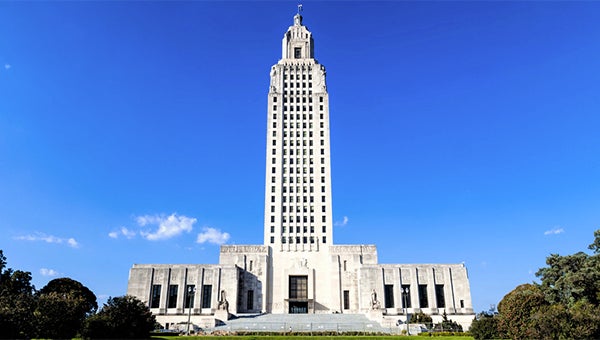Taxes, cuts passed but budget still not fixed as second week wraps with credit downgrade
Published 7:01 am Saturday, February 27, 2016
State Rep. Malinda White said it was a tough week in the state’s capital as lawmakers got to work raising taxes and slashing spending in order to rein in the state’s current $940 million budget deficit.
Democratic Gov. John Bel Edwards has asked the Republican-controlled House to do more than simply cut spending in order to balance the budget, and Thursday’s vote in favor of a 1-cent sales tax hike showed that Republicans were willing to work with him on the issue.
White, a Democrat, voted with the majority Thursday for the tax hike, though it has a sunset provision that will end it in 2017. The sales tax increase still has to pass the Senate.
In addition, the House passed a bill co-authored by White that will introduce sales tax to online purchases. White said this should be good news for local retailers.
“That’s going to level the playing field to all the businesses in Louisiana that have brick-and-mortar stores,” she said.
White also has the distinction of being the first freshman representative this session to get a bill through committee. White authored HB 43, a bill that will change the payments the state makes to businesses that file their taxes on time. White has said in the past, the payments were historically used as a way to offset the cost for small businesses hiring accountants and other staff.
“It was never meant to be a part of a company’s profit margin,” she said.
White’s bill caps the payouts to business that pay taxes of $1,000 or more per month for a year. In short, very few mom-and-pop businesses will notice a change.
“That means your business in that year would have to have done $32 million in sales,” she said.
White’s bill counts as a spending cut, as the state pays the remittance to the storeowners.
That bill also needs Senate approval.
According to Edwards, the total amount of spending cuts should save the state $160 million. On Thursday, the legislature also approved taking $128 million from the state’s rainy day fund and using $200 million from the BP settlement to fill in the budget gap.
The 1-cent tax hike is expected to generate $210 million. All told, the house must find millions more to patch up the deficit, though as of Friday, it still has not taken up raising alcohol or tobacco taxes.
Lawmakers have until 6 p.m. March 9 to come up with the money.
The state is feeling extra pressure to get its finances in order, as this week Moody’s, the credit rating agency, downgraded the state’s credit rating by one notch.
The investment firm said on their website the state’s declining revenues from oil and gas, its structural imbalance and its expansion of Medicaid led to the downgrade.
“The negative outlook reflects the state’s continued budgetary risks and the likelihood that movement toward structural balance is likely to take time, especially in a low oil price environment,” Moody’s said in a statement on its website. “It also reflects revenue forecasting risks, Medicaid cost containment implementation risks, and uncertainty over attainability of budget balancing initiatives.”
A downgraded rating may mean an increase in interest rates. In short, the state may have to pay more when issuing bonds.
Edwards called the Moody’s decision “disappointing.”
“This is a disappointing development, particularly since we believed that Moody’s would wait until the conclusion of the special session to make any decision on our rating,” Edwards said. “Unfortunately, the downgrade confirms what we’ve been saying about the structural imbalance of our budget.
“The overuse and abuses of one time money and fund sweeps by the Jindal Administration were a major factor in this decision. It also reflects the global concern about the decline of oil prices and its impact on producing states. It is more important than ever for the legislature to work with me during this special session to stabilize our budget and repair the damage of the last eight years.”





